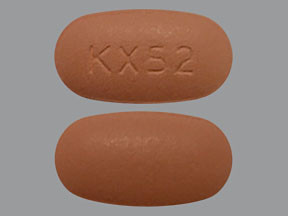FERRIC CITRATE - ORAL
PHONETIC PRONUNCIATION: (FER-us SI-trate)
COMMON BRAND NAME(S): Ferric Citrate
GENERIC NAME(S): ferric citrate
Uses
USES: Ferric citrate is used to lower high blood phosphate levels in people who are on dialysis due to severe kidney disease. Dialysis removes some phosphate from your blood, but it is difficult to remove enough to keep your phosphate levels balanced. Decreasing blood phosphate levels can help keep your bones strong, prevent unsafe buildup of minerals in your body, and may decrease the risk of heart disease and strokes that can result from high phosphate levels. This medication works by binding to phosphate in the foods you eat. The phosphate then passes out of your body in your stool. Ferric citrate is a form of iron. This medication is also used to treat low blood levels of iron (anemia) in people with long-term kidney disease who are not on dialysis. Iron is an important mineral that your body needs to produce red blood cells and keep you in good health.
How to use FERRIC CITRATE - ORAL
HOW TO USE: See also Drug Interactions section. Take this medication by mouth, usually 3 times daily with a meal and some fluids as directed by your doctor. Do not lie down for at least 10 minutes after taking your dose. Do not crush or chew the tablets. Crushing or chewing the tablets may cause your mouth or teeth to change color. Take this medication regularly to get the most benefit from it. The dosage is based on your medical condition, response to treatment, and lab test results. Do not take more of this medication than prescribed.
Side Effects
Precautions
Interactions
Overdose
Images
Reviews
Faq for FERRIC CITRATE - ORAL
Ferric citrate is an oral medication that contains iron and is used to treat low levels of iron in the body.
Ferric citrate works by providing the body with additional iron, which is essential for the production of red blood cells and oxygen transport.
Ferric citrate is prescribed to individuals who have been diagnosed with iron deficiency anemia or low levels of iron in their body.
Common side effects of Ferric Citrate may include diarrhea, constipation, stomach pain, nausea, and vomiting. It is important to consult a healthcare professional if these side effects persist or worsen.
Ferric citrate is usually taken orally with water, usually two to three times a day or as directed by your healthcare provider. It is important to follow the instructions provided on the prescription label.
Certain foods and medications can interact with Ferric Citrate, including antacids, proton pump inhibitors, tetracycline antibiotics, and dairy products. It is important to inform your healthcare provider about all the medications and supplements you are taking before starting Ferric Citrate.
The time it takes for Ferric Citrate to work varies depending on the individual and the severity of iron deficiency. It may take a few weeks to several months to see an improvement in iron levels.
Taking more than the prescribed dose of Ferric Citrate can lead to iron overload, which can be dangerous. It is important to follow the recommended dosage and consult a healthcare professional if you have any concerns.
If you miss a dose, take it as soon as you remember. However, if it is close to the time for your next dose, skip the missed dose and continue with your regular dosing schedule. Do not double the dose to make up for the missed one.
Warning
WARNING: Accidental overdose of iron-containing products is a leading cause of fatal poisoning in children younger than 6 years. Keep this product out of reach of children. If overdose does occur, get medical help right away or call a poison control center.
Disclaimer
IMPORTANT: HOW TO USE THIS INFORMATION: This is a summary and does NOT have all possible information about this product. This information does not assure that this product is safe, effective, or appropriate for you. This information is not individual medical advice and does not substitute for the advice of your health care professional. Always ask your health care professional for complete information about this product and your specific health needs.

No Reviews Yet